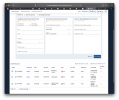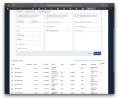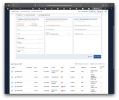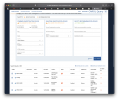Chip
Well-Known Member
- Joined
- Sep 11, 2017
- Messages
- 2,212
- Reactions
- 2,733
Brett, my apology, when I said saddle up I forget to add we make our break at sunrise. You are a few hours ahead and I did not want to sound unreasonable! May as well sleep in now. But, one final thought if I may.
The FAA responded to a Freedom of Information Act (FOIA) request by stating it had no records of any UAV risk assessment that would necessitate the regulations.
https://jrupprechtlaw.com/wp-conten...ssessment-foia-no-records-determination-1.jpg
https://jrupprechtlaw.com/wp-conten...ssessment-foia-no-records-determination-2.jpg
If the FAA is attempting to justify Remote ID to any degree on grounds of public safety, then it should have supporting data or evidence of the risk it is attempting to address. Otherwise, the regulation may be invalidated by a court as arbitrary and capricious or being unsupported by substantial evidence. These are normally relatively low bars for an administrative agency to clear but the FAA's FOIA response may be leading edge of the wedge.
Reference: Section 706(2)(A) of the Administrative Procedure Act (APA). May be found at:

 www.law.cornell.edu
www.law.cornell.edu
The federal statute governing court review of administrative agency action says that the court shall:
Hold unlawful and set aside agency action, findings, and conclusions found to be—
(A) arbitrary, capricious, an abuse of discretion, or otherwise not in accordance with law;
(B) contrary to constitutional right, power, privilege, or immunity;
(C) in excess of statutory jurisdiction, authority, or limitations, or short of statutory right;
(D) without observance of procedure required by law;
(E) unsupported by substantial evidence in a case subject to sections 556 and 557 of this title or otherwise reviewed on the record of an agency hearing provided by statute; or
(F) unwarranted by the facts to the extent that the facts are subject to trial de novo by the reviewing court.
The FAA responded to a Freedom of Information Act (FOIA) request by stating it had no records of any UAV risk assessment that would necessitate the regulations.
https://jrupprechtlaw.com/wp-conten...ssessment-foia-no-records-determination-1.jpg
https://jrupprechtlaw.com/wp-conten...ssessment-foia-no-records-determination-2.jpg
If the FAA is attempting to justify Remote ID to any degree on grounds of public safety, then it should have supporting data or evidence of the risk it is attempting to address. Otherwise, the regulation may be invalidated by a court as arbitrary and capricious or being unsupported by substantial evidence. These are normally relatively low bars for an administrative agency to clear but the FAA's FOIA response may be leading edge of the wedge.
Reference: Section 706(2)(A) of the Administrative Procedure Act (APA). May be found at:

5 U.S. Code § 706 - Scope of review
The federal statute governing court review of administrative agency action says that the court shall:
Hold unlawful and set aside agency action, findings, and conclusions found to be—
(A) arbitrary, capricious, an abuse of discretion, or otherwise not in accordance with law;
(B) contrary to constitutional right, power, privilege, or immunity;
(C) in excess of statutory jurisdiction, authority, or limitations, or short of statutory right;
(D) without observance of procedure required by law;
(E) unsupported by substantial evidence in a case subject to sections 556 and 557 of this title or otherwise reviewed on the record of an agency hearing provided by statute; or
(F) unwarranted by the facts to the extent that the facts are subject to trial de novo by the reviewing court.
Last edited:















